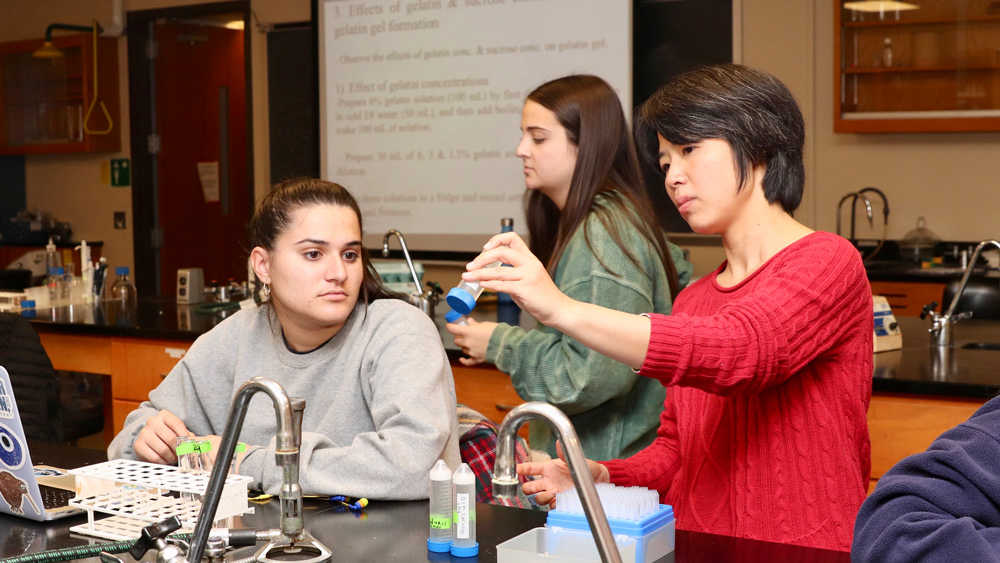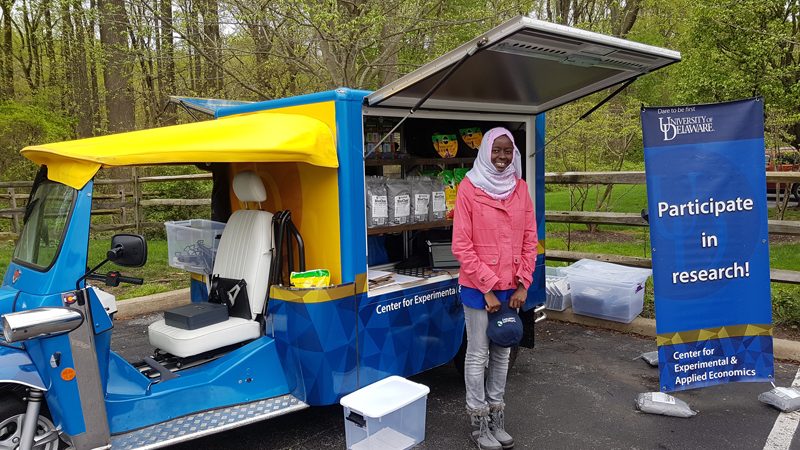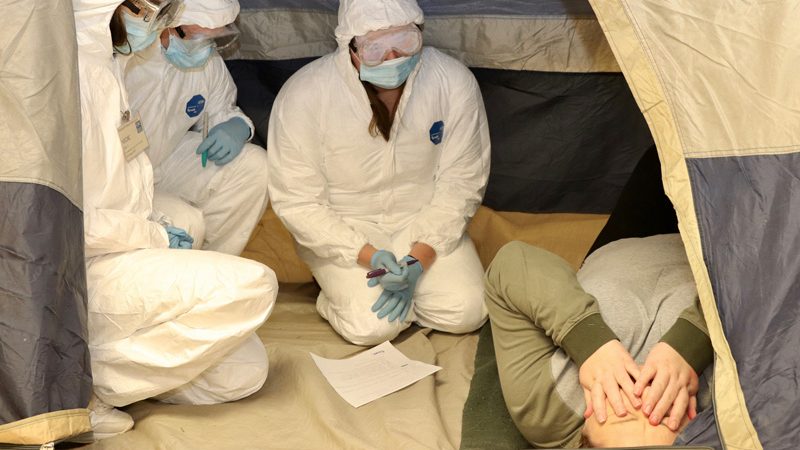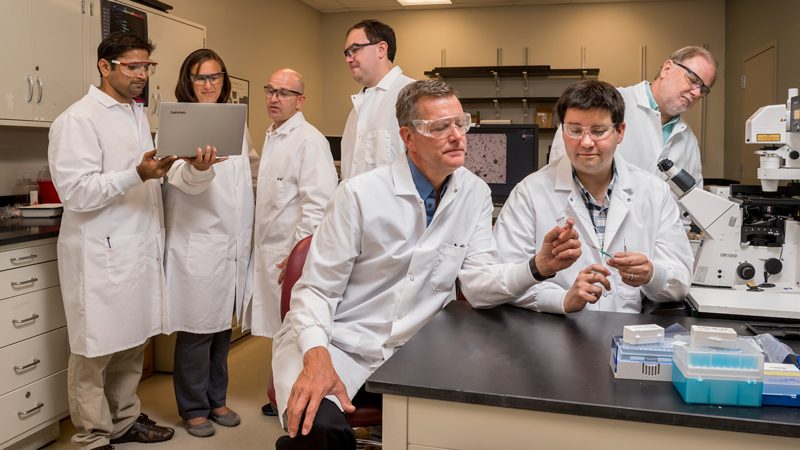
Current Graduate Students

Committed graduate student success
For questions on a specific program, the graduate program director in each department can serve as a contact for further information.
- Animal and Food Sciences: Dr. Tanya Gressley
- Applied Economics and Statistics
- MS Statistics: Dr. Wei Qian
- MS Applied Statistics: Dr. Tom Ilvento
- MS Agricultural and Resource Economics: Dr. Leah Palm-Forster
- Entomology and Wildlife Ecology: Dr. Deb Delaney
- Plant and Soil Sciences: Dr. Jeffry Fuhrmann
Quick links
Graduate programs by department
Soil scientist Yan Jin awarded University’s highest faculty honor: youtube.com/watch?v=Rh__5gorAvo
Research News
-
Faculty members elected American Association for the Advancement of Science fellows
April 29, 2024 | Written by Tracey BryantTwo University of Delaware professors, Rodrigo Vargas and Deborah Allen, have been elected fellows of the American Association for the Advancement of Science (AAAS) — one of the largest scientific societies in the world and publisher of the Science family of journals. The 2023 class includes 502 scientists, engineers and innovators across 24 disciplines, who are being honored for their scientifically and socially distinguished achievements. -
Decoding rice roots
April 26, 2024 | Written by Nya WynnFrank Linam, a plant and soil sciences doctoral student at the University of Delaware, is studying how the wet soil conditions in flooded rice paddies affect the way the roots take in nutrients and filter out toxins. Linam found that the plaque successfully holds onto the arsenic in various environments and soil types so that it doesn’t make it into the roots. -
Kali Kniel leads the charge in safe food practices globally
April 18, 2024 | Written by Nya WynnUniversity of Delaware faculty member Kali Kniel traveled to Geneva, Switzerland to participate in an expert committee meeting on viruses and food safety with other experts. Joint Food and Agriculture Organization/World Health Organization Expert Meetings on Microbiological Risk Assessment (JEMRA) committees are convened to review the state of science on particular topics and in turn provide information that is useful to global guidance, in this case to improve the control of viruses in food. The group ranked the most prevalent viruses transmitted through food and recommended how countries across the world could help combat outbreaks. -
Recovering the coast
April 16, 2024 | Written by Molly SchaferGraduate student Laura Taylor is testing a new approach to encourage coordination between adjacent homeowners who have become eligible for a flood-related buyout. Full participation in coastal buyouts can protect homeowners from repeated and severe flood risk and restore floodplain functionality. Working with UD Prof. Christina McGranaghan, Taylor conducts her economic experiments at UD’s Center for Experimental and Applied Economics (CEAE). Taylor is funded by the Delaware Sea Grant and a Graduate Research Enhancement Grant from Gerald J. Mangone Climate Change Science and Policy Hub.
Research News
-
Faculty members elected American Association for the Advancement of Science fellows
April 29, 2024 | Written by Tracey BryantTwo University of Delaware professors, Rodrigo Vargas and Deborah Allen, have been elected fellows of the American Association for the Advancement of Science (AAAS) — one of the largest scientific societies in the world and publisher of the Science family of journals. The 2023 class includes 502 scientists, engineers and innovators across 24 disciplines, who are being honored for their scientifically and socially distinguished achievements. -
Decoding rice roots
April 26, 2024 | Written by Nya WynnFrank Linam, a plant and soil sciences doctoral student at the University of Delaware, is studying how the wet soil conditions in flooded rice paddies affect the way the roots take in nutrients and filter out toxins. Linam found that the plaque successfully holds onto the arsenic in various environments and soil types so that it doesn’t make it into the roots. -
Kali Kniel leads the charge in safe food practices globally
April 18, 2024 | Written by Nya WynnUniversity of Delaware faculty member Kali Kniel traveled to Geneva, Switzerland to participate in an expert committee meeting on viruses and food safety with other experts. Joint Food and Agriculture Organization/World Health Organization Expert Meetings on Microbiological Risk Assessment (JEMRA) committees are convened to review the state of science on particular topics and in turn provide information that is useful to global guidance, in this case to improve the control of viruses in food. The group ranked the most prevalent viruses transmitted through food and recommended how countries across the world could help combat outbreaks.
A video of Transforming Lives with Scholarships: Shem Msabila, Marcia & Jim Borel: youtube.com/watch?v=FvfcsQJw8Sw
Shem Msabila, ANR24, from Tanzania, Africa never even imagined the possibility of researching plants in the United States. He had heard “no” too many times to have hope in pursuing research that will make a difference in his home country. But funding from Marcia and Jim Borel helped Shem experience more that he could have ever dreamed.





 @UDcanr on Instagram
@UDcanr on Instagram